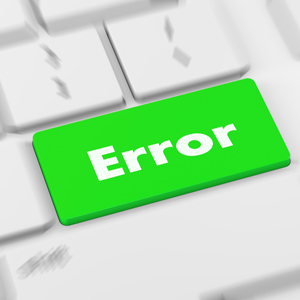Courthouse software issues have led to wrongful arrests, public defender says

A public defender in Alameda County, California, alleges that a new, unwieldy courthouse computer system has led to the wrongful arrests of dozens of people.
Public Defender Brendon Woods filed a motion in November asking Alameda County to abandon the Odyssey Case Manager software until the problems can be fixed, the San Francisco Chronicle reports. His motion says the software has led to erroneous bench warrants; mistaken rap sheets that list misdemeanors as felonies; and the mislabeling of drug defendants as sex offenders.
Many of the glitches are caused by a difficult user interface, according to Debbi Pearson, a local representative of the Service Employees International Union. She told the Chronicle that a process that might have taken two mouse clicks to complete under the old system could take 25 clicks under the new system. The public defender’s office says that, as a result of the difficulty, information isn’t being quickly updated and a backlog of 12,000 files that haven’t been uploaded is growing by up to 300 files a day.
Twenty-six court systems in California use the software, as do courts in other parts of the country, Ars Technica reports. An activist group in Shelby County, Tennessee, has filed a civil rights lawsuit that also alleges information is not being entered into the Odyssey system, leading to wrongful arrests and unwarranted, additional jail time for some.
The software is made by Tyler Technologies Inc. A spokesperson tells the Chronicle the company “is fully supportive of our clients and we work to resolve any system issues directly with them.”
Alameda County Court Executive Officer Chad Finke tells Ars Technica that the court is switching to another version of Odyssey in January that may help solve some of the problems. He also says part of the problem is funding issues that keep the court from hiring additional staff. “If we had bought Odyssey 15 years ago,” Finke said, “we probably wouldn’t have been in this situation because we would have just thrown more bodies at it.”
University of California at Davis law professor Elizabeth Joh considers what would happen if a wrongful arrest caused by the software problems leads to discovery of drugs or other incriminating evidence. In an article for Slate, she notes a 1994 U.S. Supreme Court decision that allowed prosecutors to rely on evidence seized in an arrest based on an invalid warrant because the police had made the arrest in good faith. That decision, however, was based on an isolated error, and some justices suggested the result could be different if a record-keeping system caused routine false arrests.
“So how do individual criminal defendants identify and challenge the ‘fruits of computerized error,’?” Joh wrote, quoting the opinion in the 1994 case by then-Justice David H. Souter.
“The answer is that we don’t have a very good answer,” Joh wrote. “At some point in the future, the Supreme Court may decide to apply the exclusionary rule in a case where systemic software errors violate Fourth Amendment rights.”



